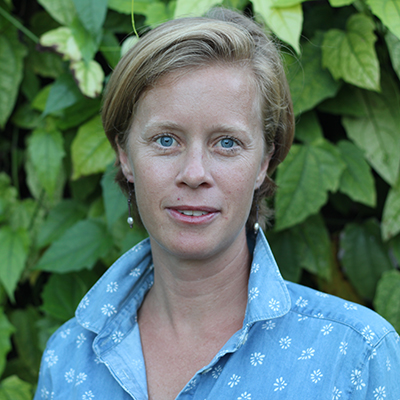New Practicum Builds on Antiracism Efforts at BU Law
Students work on racial justice projects with community partners in experiential course taught by Caitlin Glass.

New Practicum Builds on Antiracism Efforts at BU Law
Students work on racial justice projects with community partners in experiential course taught by Caitlin Glass.
Caitlin Glass has studied and advocated for racial justice in the criminal legal system for years, most recently as policy program director at the BU Center for Antiracist Research (CAR). While at CAR, she played a critical role in the drafting of several amicus briefs, including in a case in which the Massachusetts Supreme Judicial Court struck down life without parole sentences (LWOP) for young adults between the ages of 18 and 20.
Now, Glass is building on those efforts as a clinical instructor for BU Law’s Antiracism and Community Lawyering Practicum, which is being offered for the first time this spring. Glass is co-leading the practicum with Professor Robert S. Chang, founder and executive director of the Fred T. Korematsu Center for Law and Equality at Seattle University School of Law, who worked with her on the amicus brief in the LWOP case.
“This is actually an exciting outgrowth of the work on that case,” Glass says of the practicum and her collaboration with Chang. “The idea is that students will learn about movement and community lawyering while also engaging in field work projects that involve social justice advocacy.”

Six BU Law students are participating in the new practicum this semester, including three from the ASPIRE (Antiracist Scholars for Progress, Innovation, and Racial Equity) program, which is a partnership of BU Law and the Center for Antiracist Research. The program, which provides full tuition scholarships to students who have demonstrated a commitment to antiracism, social justice, and racial equity, includes an experiential component, which can be fulfilled through Glass’ practicum or through a racial-justice-focused project under Glass’ direction within the Legislative Policy & Drafting Clinic.
We’re thinking about how the law can be a tool for social change and, in particular, a tool for racial justice.
Much of the practicum’s work is confidential, but, so far, students are writing amicus briefs, opinion pieces for mainstream news outlets, and talking points for social justice organizations. They may also help create resources about felony murder laws as part of a project Glass has been working on with several other organizations, including the Felony Murder Elimination Project and Free Hearts. Glass regularly publicizes her legal research through popular media: some of her research on state felony murder laws was included on a website that accompanied a 2023 New Yorker story by Sarah Stillman.
“We’re thinking about how the law can be a tool for social change and, in particular, a tool for racial justice,” Glass says.
The practicum expands on BU Law’s other experiential offerings, which are focused on equity and include—in addition to practicums—clinics, externships, and simulations. While Glass’ practicum addresses anti-racism in its work with clients and partners, every clinic seminar at BU Law touches on issues of bias, racism, and/or cultural competency.
Although Glass and Chang’s work on the LWOP brief, which was filed in Commonwealth v. Mattis, predates the creation of the Antiracism and Community Lawyering Practicum, it is a good illustration of the kind of work the practicum will be involved in.
In addition to the Center for Antiracist Research (represented by Glass and BU Law Associate Dean for Equity, Justice & Engagement and Professor Jasmine Gonzales Rose) and the Fred T. Korematsu Center for Law and Equality, amici on the brief were the Center on Race, Inequality, and the Law at New York University and the Criminal Justice Institute at Harvard Law School. It argued that the Massachusetts high court should strike down LWOP sentences for young adults between the ages of 18 and 20 in part because of extreme racial discrepancies in how the sentence has been applied (a previous decision from the court had found the sentence unconstitutional for children under the age of 18). In a system rife with racial inequities, the application of LWOP for 18–20-year-olds is especially uneven: Black people are 16 times more likely than their white peers to be serving such a sentence at that age, the amici wrote in their brief.
In January, the court issued its ruling in Mattis, holding—based on ample scientific evidence of differences between the brains of younger adults and older adults—that LWOP for people who are 18-, 19-, or 20-years-old violates Article 26 of the Massachusetts Constitution, which prohibits “cruel or unusual punishments.” The ruling is the first of its kind in the country, striking down both mandatory and discretionary LWOP sentences for the age group. The court acknowledged Glass’ amicus brief but did not specifically address race in its ruling.
Still, Glass and Gonzales Rose say their brief was a way to draw public attention to the pervasive problem of racial bias in the criminal system. Additionally, in July, the brief was cited in testimony to the Massachusetts Joint Committee on the Judiciary on bills that would address equitable sentencing for felony and joint venture murder and reducing mass incarceration.
“It’s really important to raise these extreme racial disparities so that the court can know about them, whether or not [the information] is ultimately in the opinion, but also for educating the public and other stakeholder advocacy groups,” Gonzales Rose says. “Impacted communities need to know about this.”
Chang, who is moving with his center to the University of California Irvine School of Law this summer, says he was impressed by Glass in her work on the Mattis and other briefs.
“She’s not just thinking about the immediate brief or case,” he says. “She’s thinking about how it fits into the bigger picture, choosing projects that advance this bigger picture.”
Gissela Moya (’25) and Lucia Martinez (’25) are both ASPIRE students in the practicum. They recently helped draft an amicus brief addressing the admissibility of expert evidence about racism in a case impacting people serving wrongful and disproportionate convictions. In the brief in the case, Commonwealth v. Daniel Rogers, the practicum students argued in favor of a Massachusetts criminal procedure rule that allows judges to reduce verdicts and that a lower court had wrongfully excluded neuropsychological evidence about the effects of racial violence against the defendant. In addition to the practicum and the Fred T. Korematsu Center for Law and Equality, the brief was joined by, among others, the Committee for Public Counsel, the Massachusetts Association of Criminal Defense Lawyers, the New England Innocence Project, and several evidence law scholars (including Gonzales Rose).
“Lucia and Gissela did an incredible job drafting sections of this brief, doing legal research, and interviewing individuals whose stories illustrate the real-world impact of the decision that’s before the court,” Glass says.
Moya says the practicum is “very inspiring.”
“It reminds you that there’s something greater than being a lawyer—it’s being a part of movements, supporting great causes and people,” she says. “The type of people in the practicum are very committed people who want to be creative about how to use the law for good.”
Gonzales Rose says the practicum is a “rich opportunity for students at BU Law to immerse themselves in antiracist lawyering.”
“We’re thrilled to have this practicum,” she says. “What Caitlin Glass has to offer our students is tremendous.”
